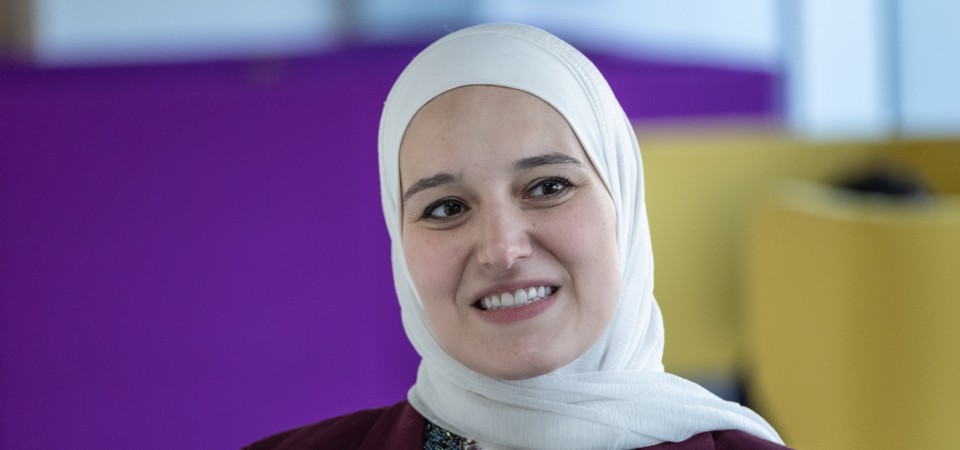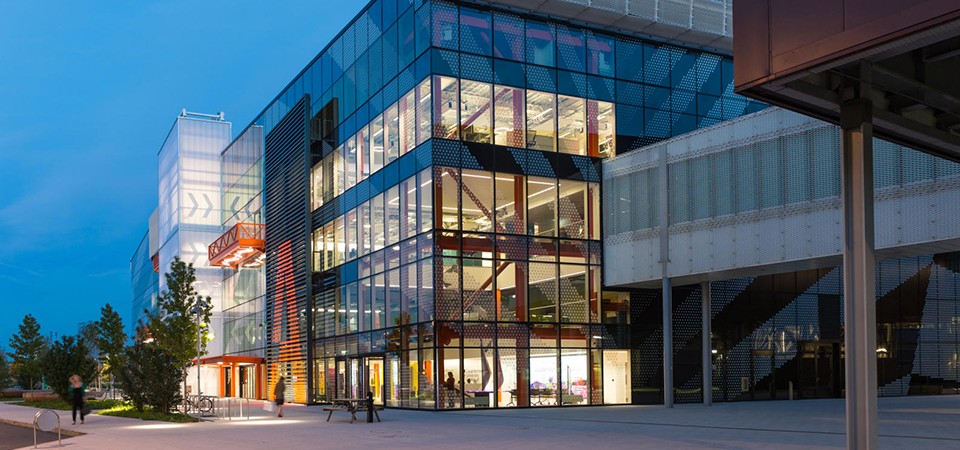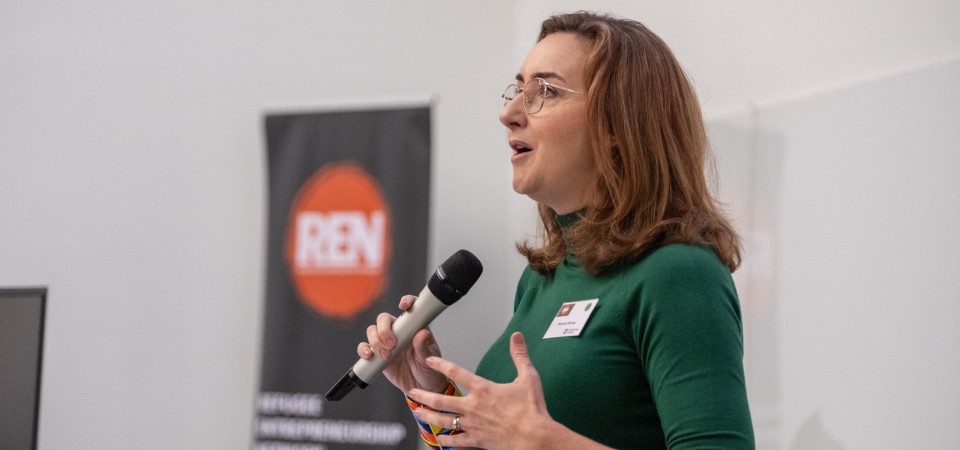More than 200 people visited the campus at the Queen Elizabeth Olympic Park, London, to take part in global panels, workshops, and discussions on the state of refugee entrepreneurship, and listen to talks from leading figures in the sector.
Since 2018, the gatherings have been the leading forum for sharing evidence, best practices and policy insights to grow the scale and impact of refugee entrepreneurship worldwide.
Each year, the summits set collective priorities – such as unlocking finance and engaging companies to support refugee-led businesses – while fostering collaboration and investment across the ecosystem.
The 2025 event – held from September 18 to 19 – was organised by Dr Michelle Richey, of Loughborough Business School, and welcomed dozens of former refugees, who have now become British citizens and launched a variety of new businesses with the help of the network.
“It was amazing to see so many of our past members back with us, joining in discussions which will go on to help the next generation of entrepreneurs,” said Dr Richey.
“Most come from very challenging backgrounds. From homes ravaged by wars and conflict, from persecution, from poverty.
“Our aim at REN is give everyone the best possible opportunities so they can achieve their potential and today is a wonderful testament to those who have succeeded.”
They included Syrian refugee, Rahaf Allymoni, founder of Daffee, a coffee alternative made from ground date seeds.
Rahaf and her husband, Tamim, are now Dutch citizens after seeking asylum in the Netherlands in 2019.
Their international product is now supplied to more than 700 stores across Europe, thanks to the support they received from the network.
“We are so thankful to the Refugee Entrepreneurship Network,” said Rahaf (picture below).
“Our journey has not been easy, and I am so proud of what we have built, and grateful for the help we’ve had.
“We now have our own factory and supply Daffee to hundreds of suppliers in lots of different countries.”

Image: Rahaf Allymoni, founder of Daffee. Credit: Loughborough University
The two-day event also featured the results of a large global survey, delivered by Joris Amin of Forward Inc., which highlighted the growing scale and impact of refugee-founded businesses worldwide.
The global survey of refugee entrepreneurship organisations reveals both successes and challenges for refugees turning ideas into enterprises:
- Thousands supported: Organisations help around 500 refugees explore entrepreneurship each year
- New businesses launched: The median number of refugee-founded businesses per organisation is over 100, with some reporting tens of thousands
- Job creation: Around 37% of refugee businesses employ staff, averaging four employees each. More than half of these workers are also refugees or newcomers
- Business resilience: 56% of refugee-led businesses remain active three years after launch, comparable to global small business survival rates
- Pathways to stability: Nearly half (49%) of refugee founders earn a living wage from their ventures, while others gain skills and contacts that lead to employment. Notably, 44% of programme participants who did not start a business still found work or improved their job prospects
- Finance raised: Refugee entrepreneurs have attracted significant investment, with a median of €300,000 raised across businesses supported by each organisation. Some reported totals as high as €75 million
“These figures underline the resilience of refugee entrepreneurs and the crucial role support organisations play in helping them succeed,” said Dr Richey.
“Refugee-founded businesses are not only creating livelihoods for their founders but also generating jobs and opportunities for other newcomers.”

Image: Loughborough University London campus, near the Queen Elizabeth Olympic Park. Credit: Lboro University
Professor Emily Keightley, Pro-Vice Chancellor for Vibrant and Inclusive Communities at Loughborough, said: “Hosting the REN Summit aligns closely with our strategic theme of Vibrant and Inclusive Communities. We are committed to fostering opportunities for people from all backgrounds to thrive.
“By supporting research and initiatives that empower refugee entrepreneurs, we not only strengthen global collaboration but also live out our values of inclusivity, innovation, and resilience.”
The REN Summit has been held annually since 2018, convening the leading global community focused on refugee entrepreneurship.
The 2025 gathering at Loughborough University London underscores the UK’s role as a hub for research, policy, and practice in this field.
